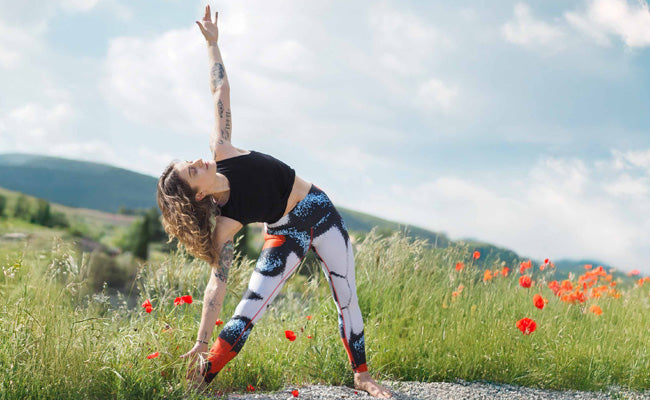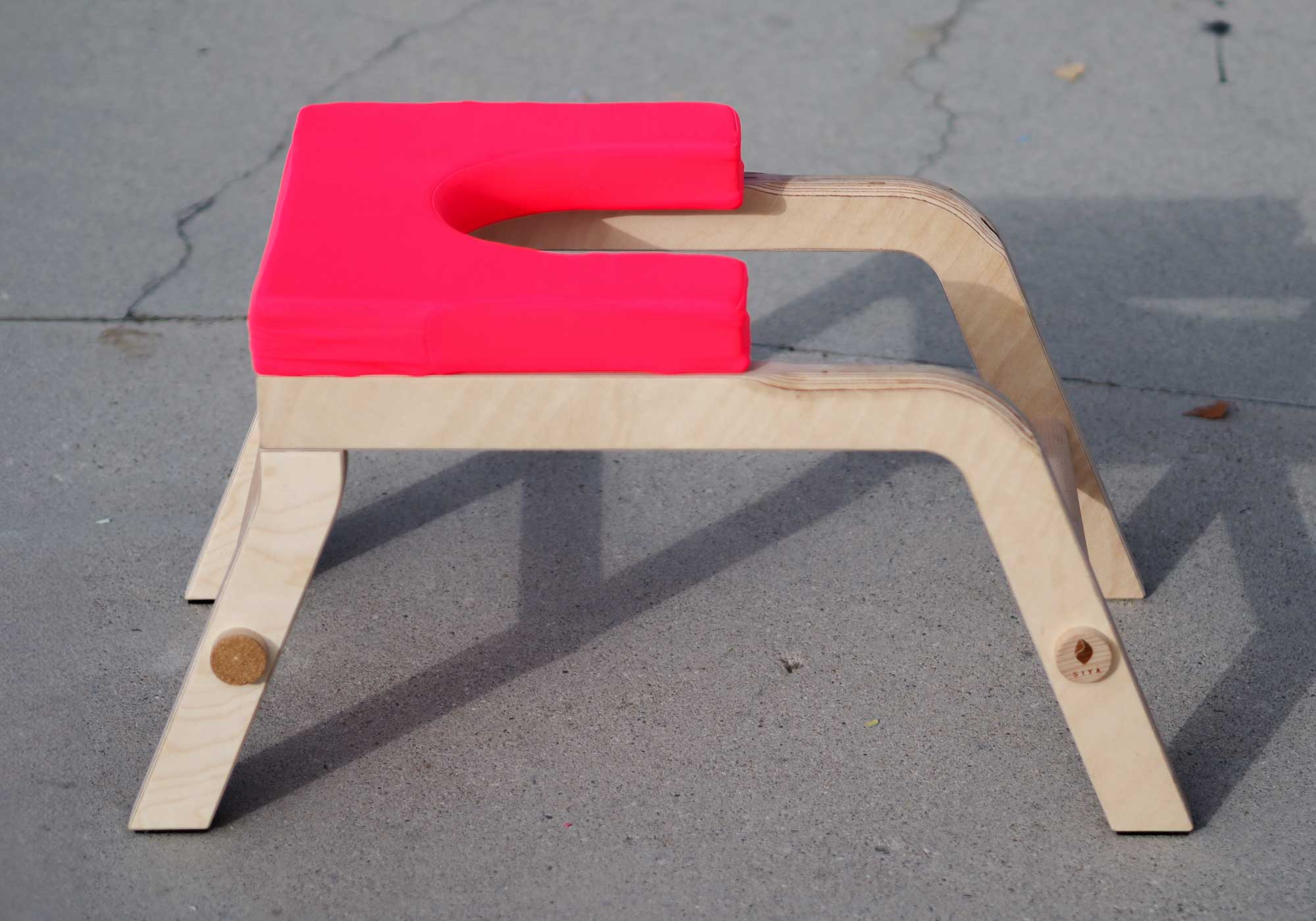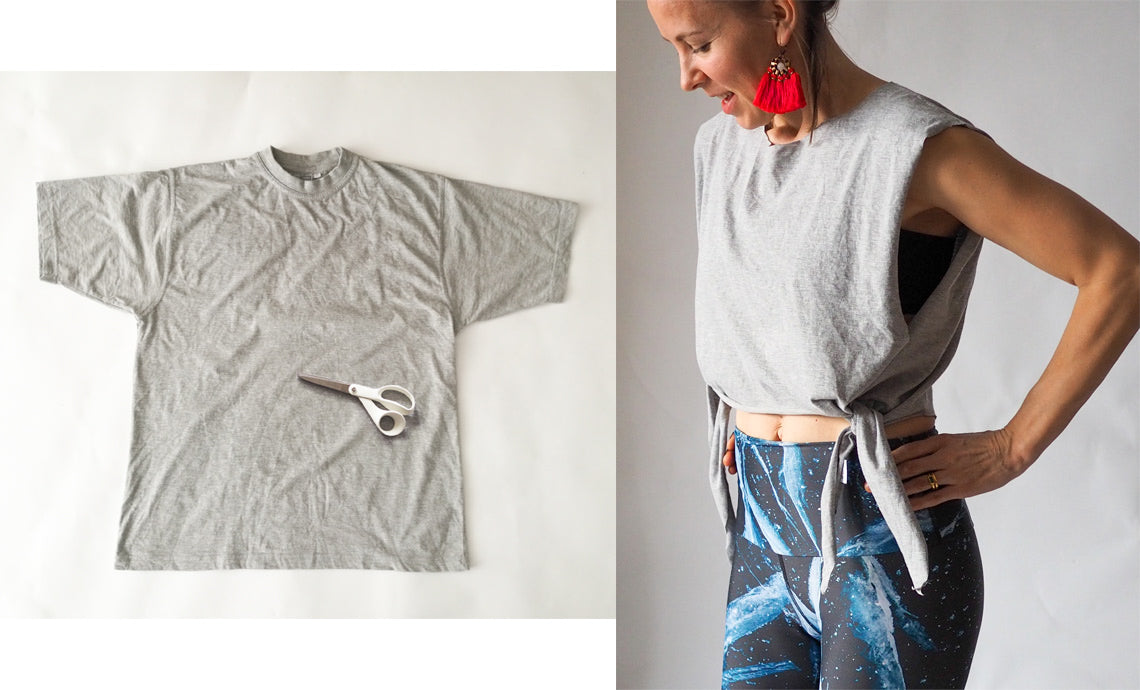YOGA LEGGINGS MICROPLASTICS TEST WITH GUPPYFRIEND WASHING BAG
It's a real problem that's easy to ignore because you can barely see the microplastic fibers. With every wash, small pieces of fiber break off our clothes and make their way from the washing machine into rivers, lakes and oceans.
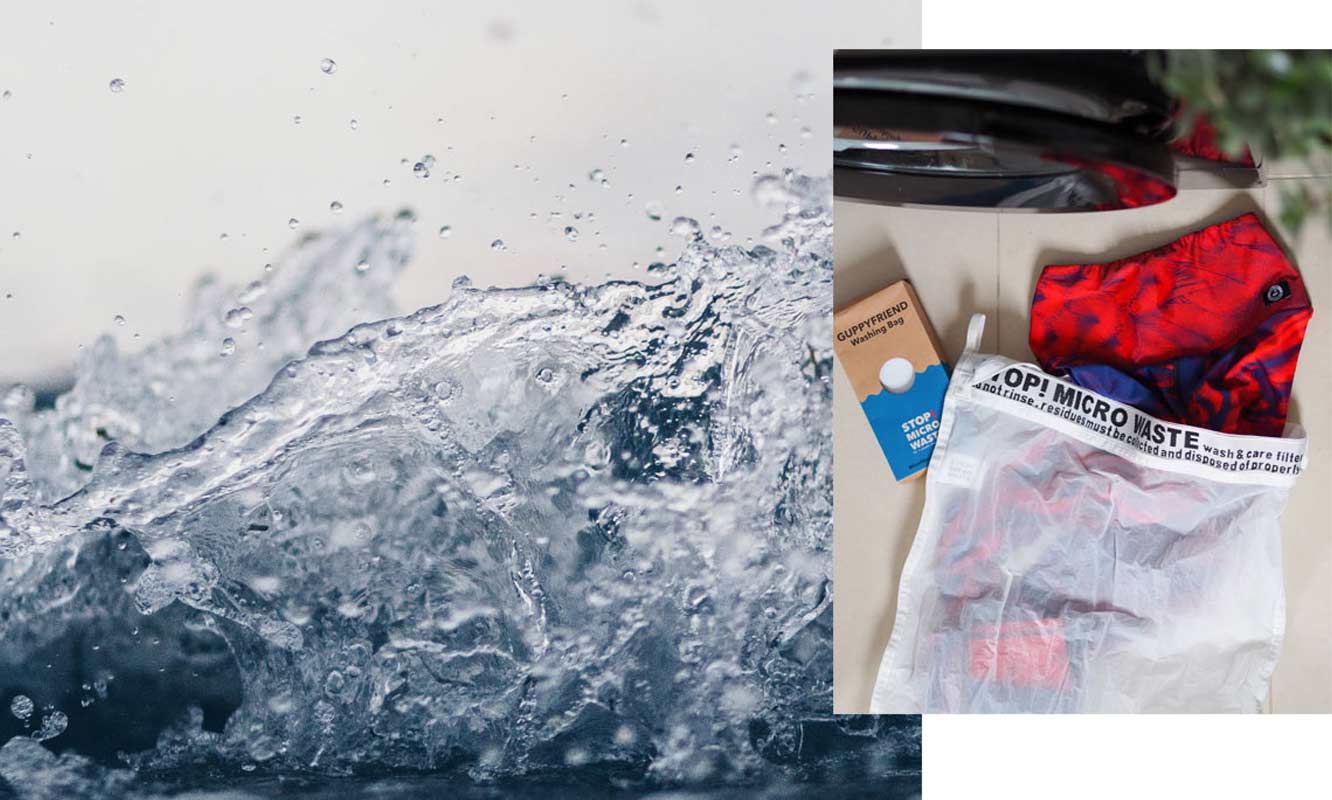
Microfibers are tiny plastic particles (barely visible to the naked eye) that end up in wastewater when synthetic textiles are washed.
This brings us to an important question: Do Arctic Flamingo yoga leggings shed microfibers when washed? Considering that all fabrics shed (micro)fibers - the short answer is yes!
Because I am concerned about the problem of microplastics in our food chain, I chose the Guppyfriend washing bag, which catches extremely small plastic fibers that come loose during washing.
I filled my Guppyfriend wash bag with several pairs of Arctic Flamingo yoga leggings and was very excited (and honestly a little scared!) about the results.
How do you use the Guppyfriend washing bags correctly?
It is recommended to fill the washing bag to a maximum of 2/3 and to only wash clothes of similar colors together in one washing bag. Only use detergents without synthetic materials and wash the closed Guppyfriend washing bag together with other clothes as usual.
I read on the Guppyfriend website that it can take a few washes to find the unraveled microfibers in the upper corners of the bag. It says that you can usually use the wash bag a few times before you need to remove the fibers. Once there are enough fibers in the corners of the bag, collect the microfibers and dispose of them in the general waste.
Attention! Do not wash under running water! This would defeat the purpose of the wash bag.
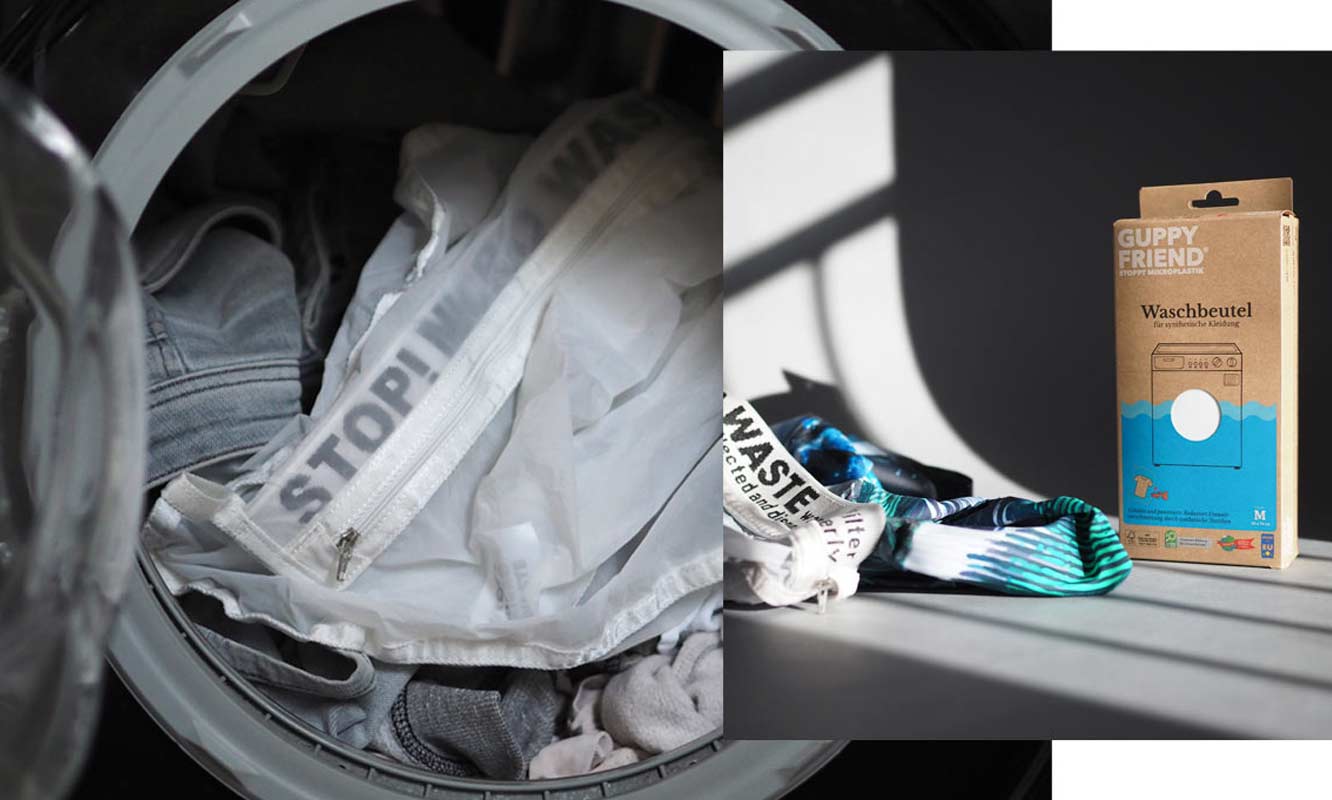
Our test
We washed our leggings a few times. We put the leggings in the Guppyfriend washing bag, close the bag and put it in the washing machine. At the end of the wash cycle, we see how many microfibers the yoga leggings have lost and how many microfibers we have saved so that they don't go down the drain. Between wash cycles, we let the leggings dry completely. And off we go!
WASH CYCLE #1 at 30°
I found a small fiber in the seam of the wash bag, and based on the color, it must be a loose piece of the seam. I couldn't find any other visible fibers in the seams of Guppyfriend. I take that as positive feedback!
WASH CYCLE #2 at 30°
The bag was free of visible fibers again. I let the leggings dry before the next wash.
WASH CYCLE #3 at 30°
I couldn't find any visible microfiber, even in the corners or seams. I have to be very happy with this result, but that probably doesn't mean there were no microfibers at all! Surely there may be transparent or microscopic parts that are invisible to the naked eye.
What should I think of my test result?
I was always very skeptical about the Guppyfriend wash bag.
Firstly, I think you have to be careful how to use it properly (yes, it's just a wash bag, but you have to read the instructions first!)
Second, I wonder if the relatively small amount of fiber the bag captures over its lifetime outweighs the cost of producing it.
But one of the main reasons I like the bag is because I really appreciate the work of the NGO behind Guppyfriend to raise awareness about the problem of microplastic pollution.
I think you should always use the bag when washing very fluffy synthetics like fleece! Your yoga clothes are most likely made of smooth, non-hairy fibers, and that's why there was nothing left in the bag after washing the Arctic Flamingos.
I think that if you can't see any microfibers in the wash bag, as in our test, that's unfortunately not very motivating to use the wash bag!
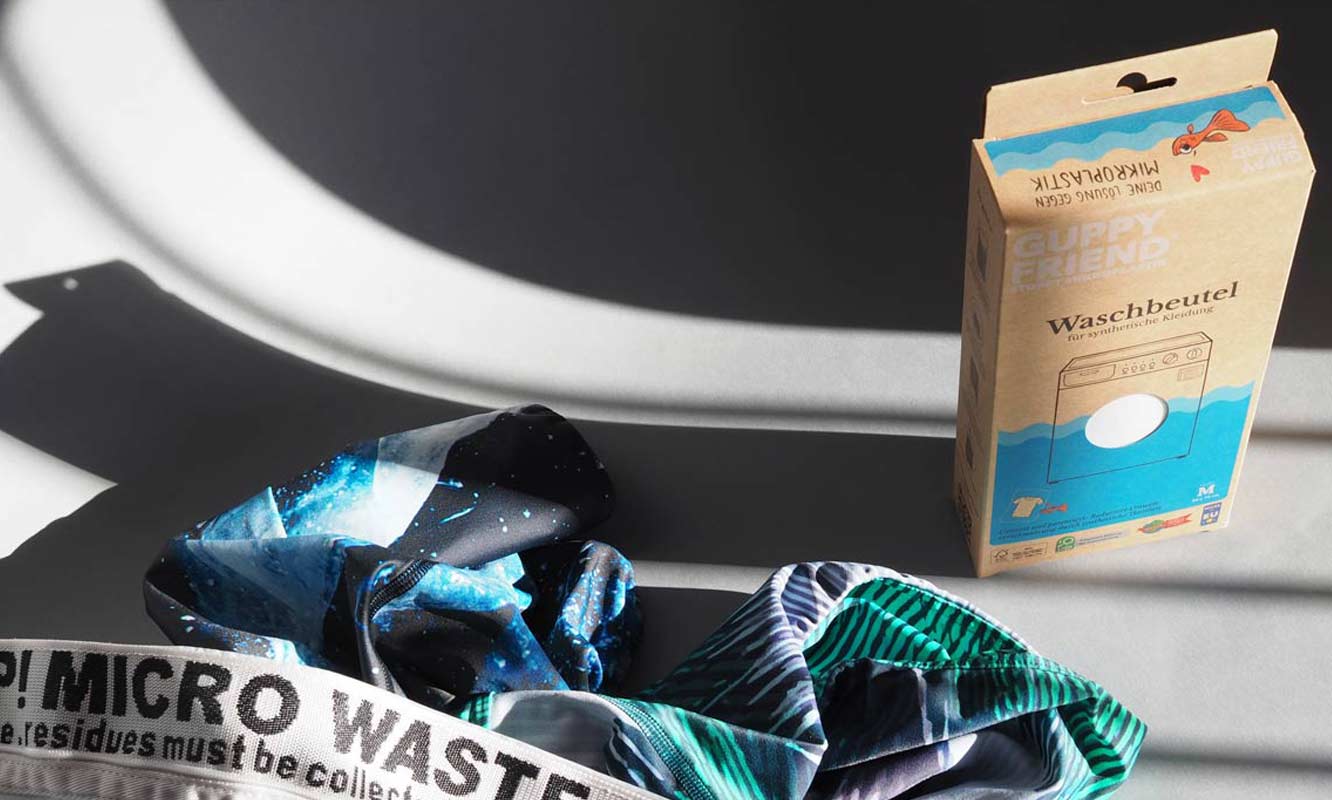
If you want to purchase your own Guppyfriend wash bag, you can purchase it together with your Arctic Flamingo leggings and do your best to avoid microfibers entering our waterways.
Guppyfriend is a product of LANGBRETT and supports STOP! Micro Waste. This non-profit organization was founded by LANGBRETT, a group of surfers and nature lovers. All proceeds from the sale of the wash bags are used to develop further solutions, measures to protect the environment from (micro)plastic pollution and for the STOP! Plastic Academy.
Against microplastics
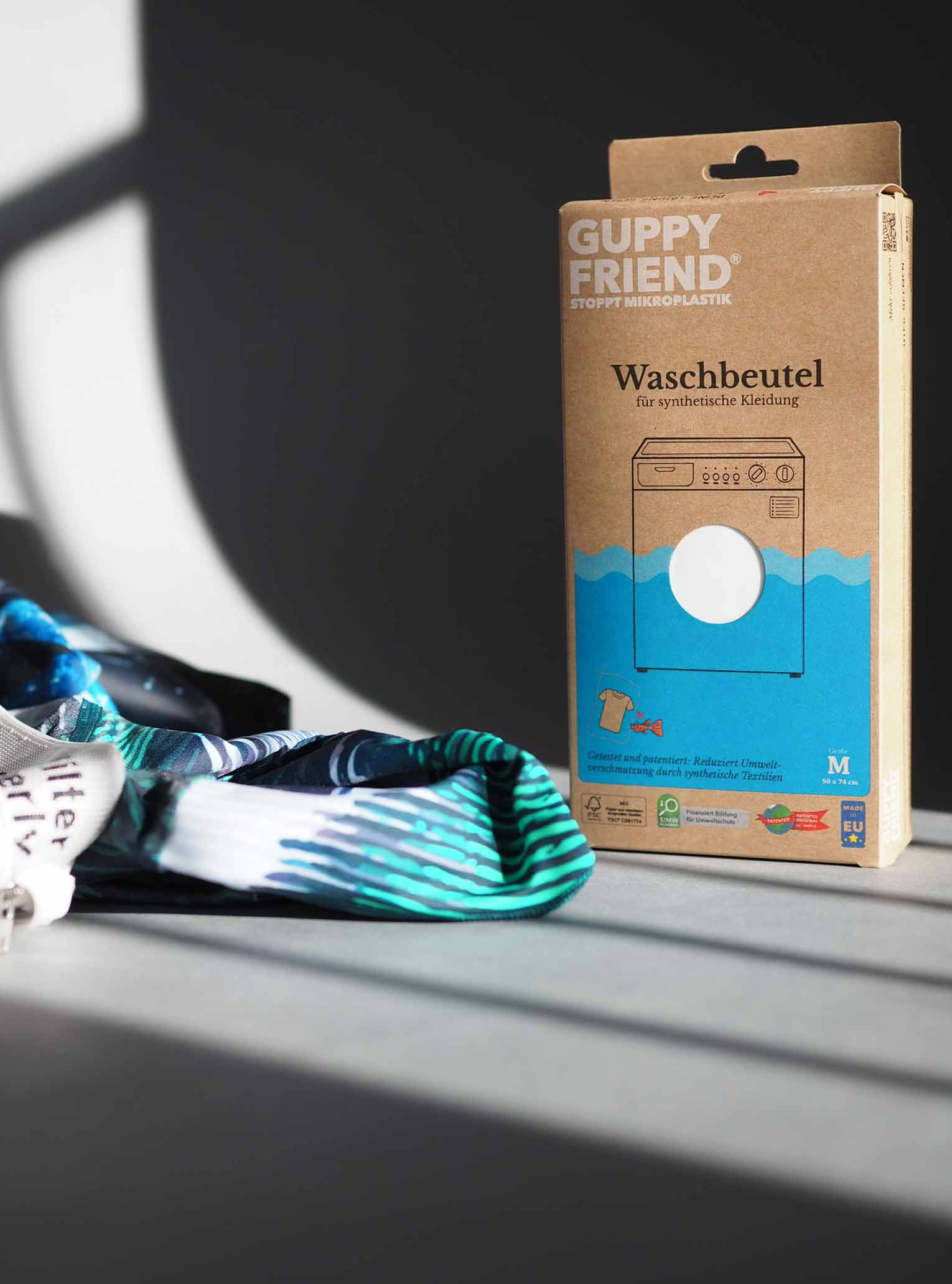
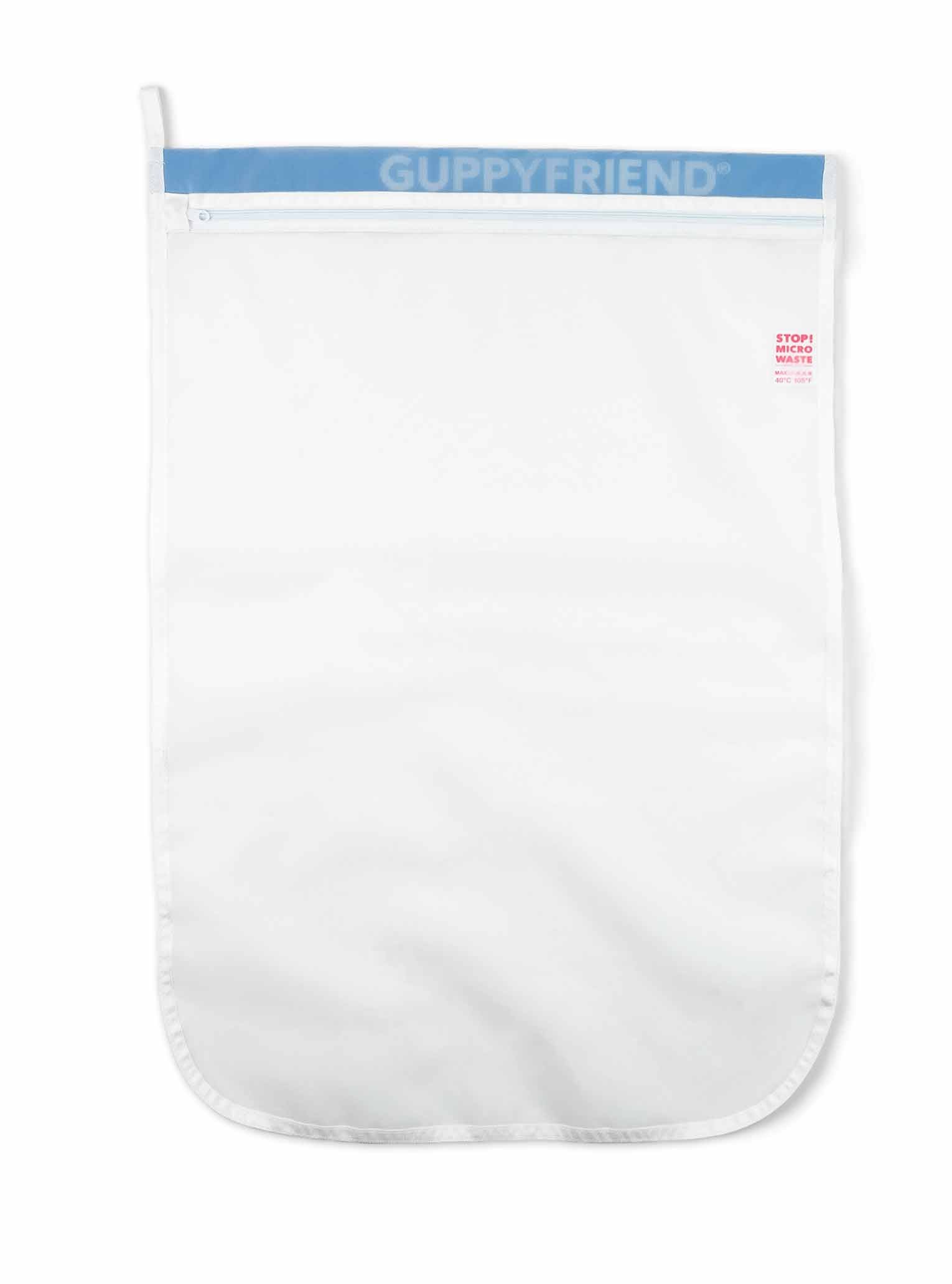
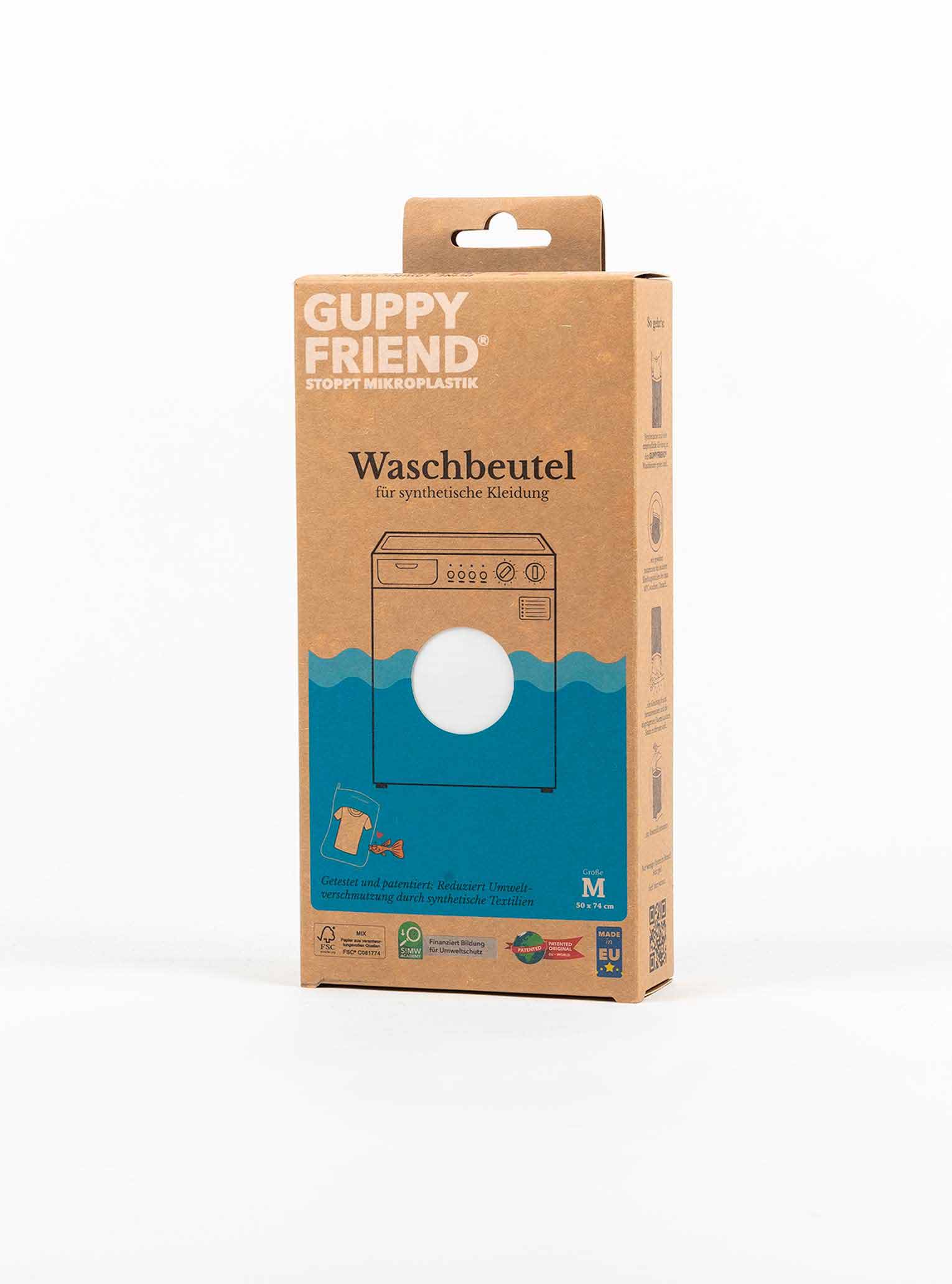
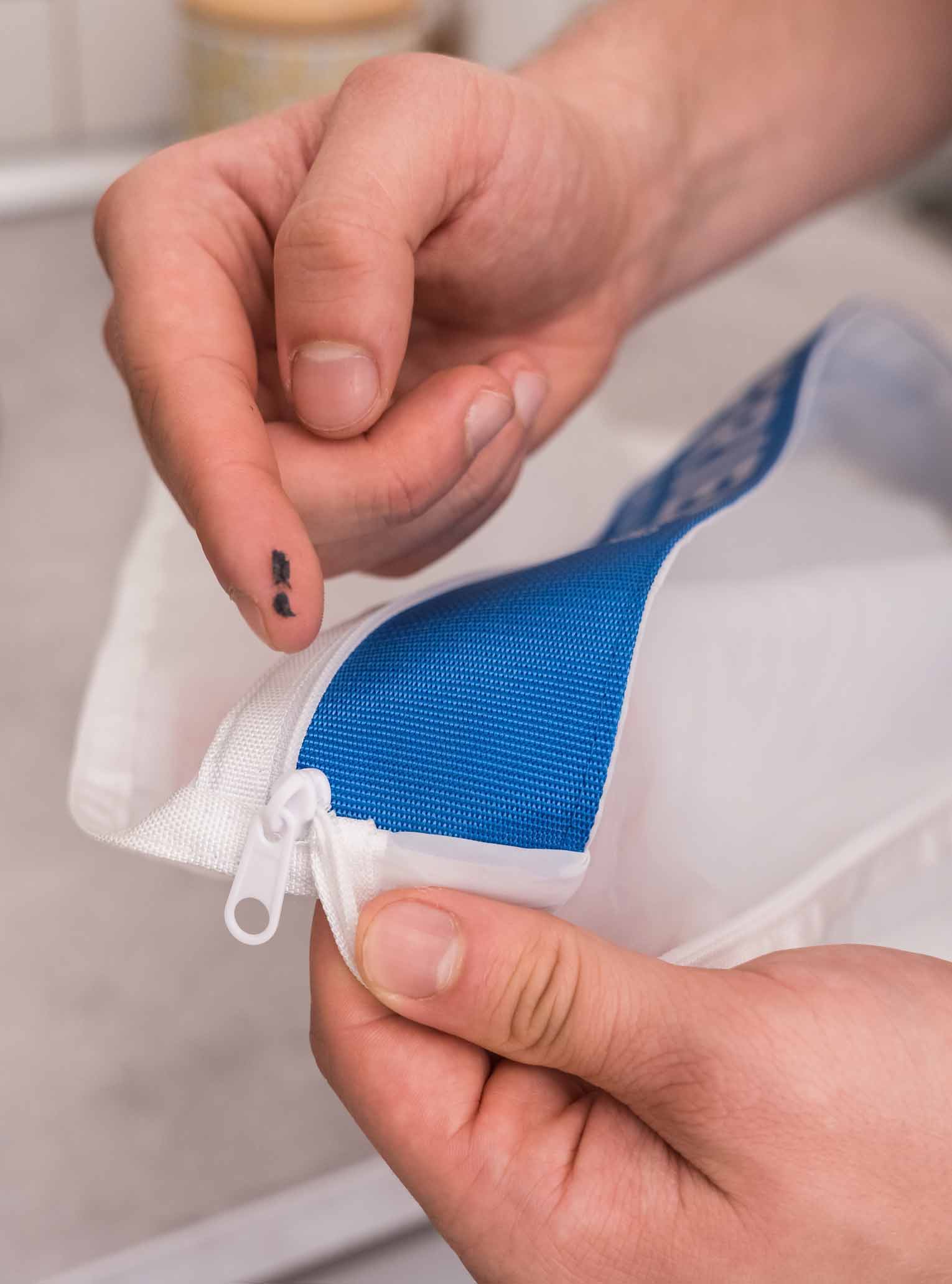
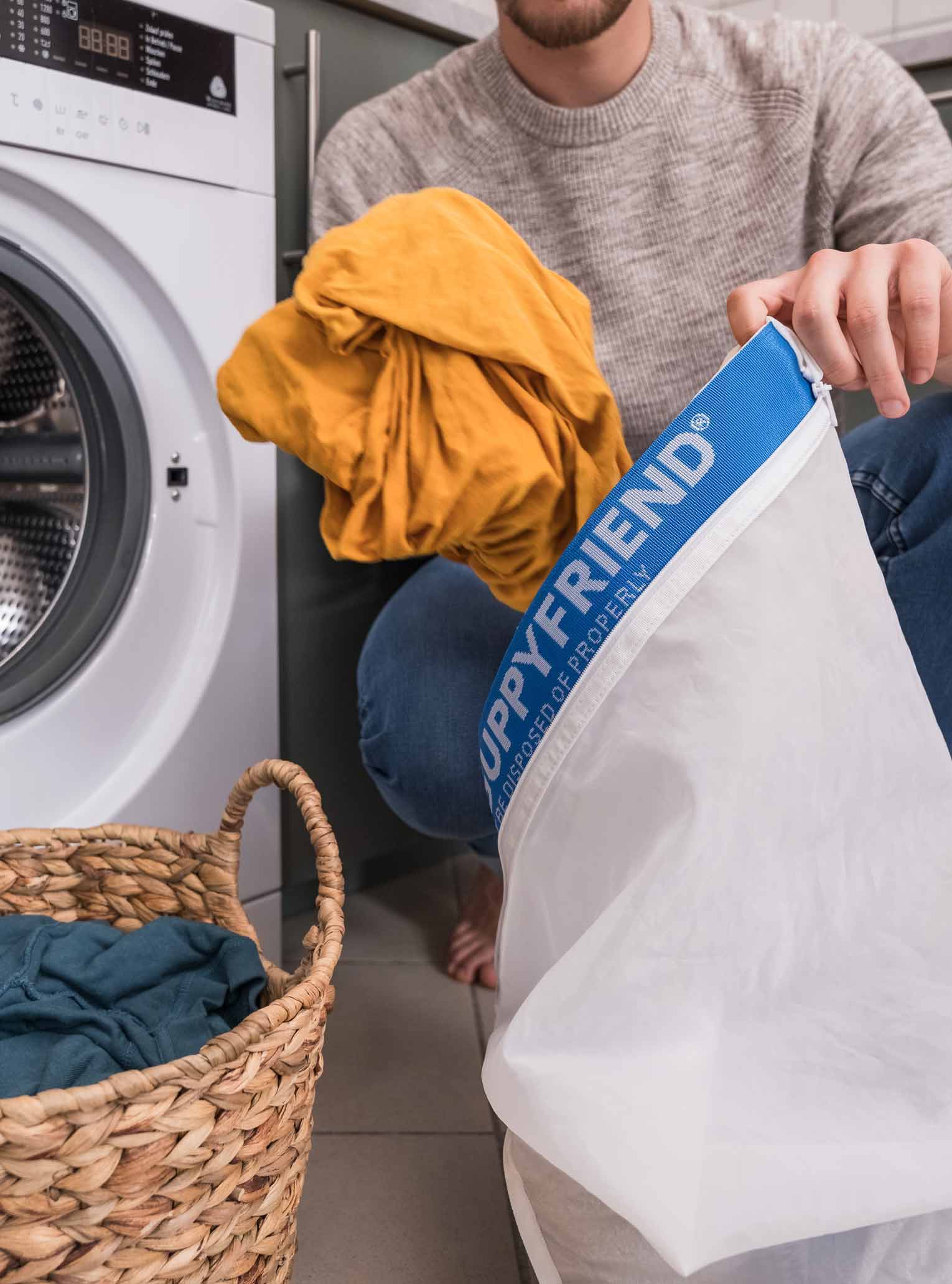
The GUPPYFRIEND washing bag allows you to wash synthetic clothing more gently and ensures that fewer microfibers end up in rivers and seas during washing. After washing the laundry in the GUPPYFRIEND, the microfibers must be removed from the bag and disposed of in the general waste.


